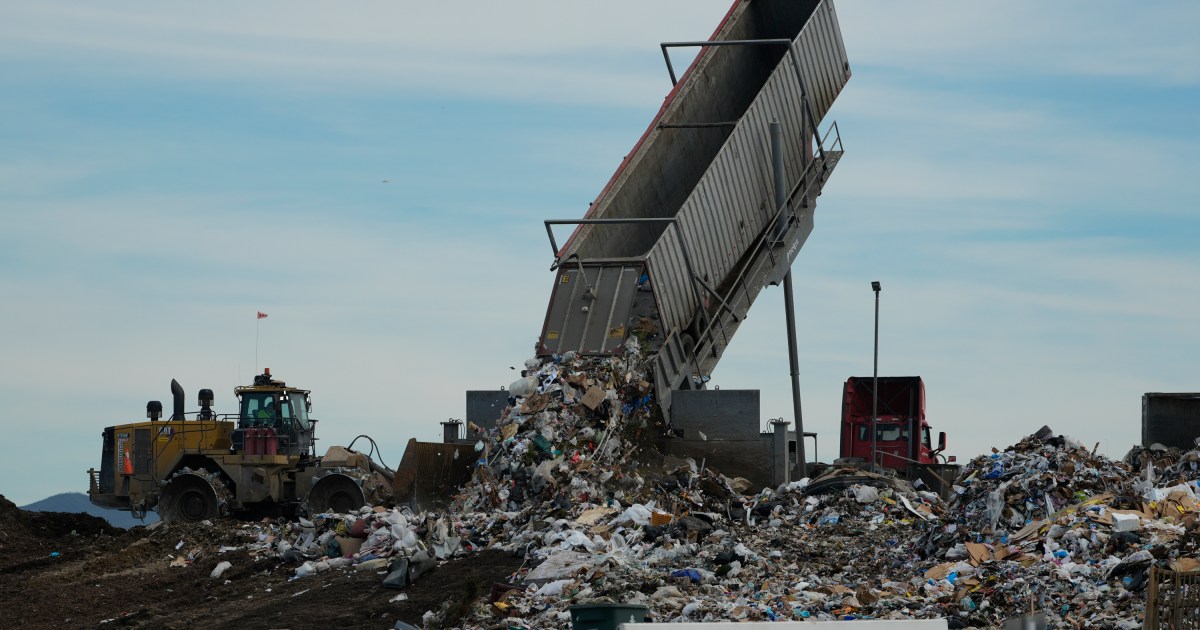
At Otay Landfill near the Mexican border, workers pick through heaps of branches and leaves to pull out plastic bits before the material is placed under tarps. The site processes 200 tons (181 metric tons) of organic waste daily and hopes to double that amount as more cities ramp up collection, said Gabe Gonzales, the landfill’s operations manager.
Once the compost is made, California’s law requires cities to use much of it. But many say they don’t have enough space to lay it all out.
Chula Vista, a San Diego County city of 275,000 people, is supposed to use 14,000 tons (12,700 metric tons) of compost a year but uses a few thousand at best, said Manuel Medrano, the city’s environmental services manager. Some is doled out in free compost giveaways for residents, while heaps of the material are stored in a fenced area of a local park.
“To transport it is really expensive, to spread it is really expensive,” Medrano said. “We’re nowhere near meeting that requirement.”
Communities with more open space might fare better. Cody Cain, head of marketing and sales for compost-maker Agromin, said his company has developed a plan to link cities struggling to meet these requirements with farmers who need the material for their soil.
“We basically are matchmakers. Call us the ‘Tinder’ of compost, and we’ll bring the farmer together with the city,” Cain said.
Food waste also can be converted into biogas to fuel vehicles or industrial operations. But a massive facility built three years ago in the Southern California city of Rialto now finds itself facing bankruptcy after Los Angeles was slow to ramp up collection, leaving the plant with insufficient waste, said Yaniv Scherson, chief operating officer for Anaergia Inc.
“It’s because the cities didn’t enforce on time the market is struggling,” he said. “If it doesn’t get feedstock this year, there is a chance it shuts down completely.”
LA Sanitation & Environment, which handles trash and recycling for the city of nearly 4 million people, had no immediate comment.
Heidi Sanborn, founding director of the environmental National Stewardship Action Council, said she supports the state’s law but wants more done to keep plastics out of compost and to develop alternative energy solutions. Some of California’s challenges stem from the fact the state is trying to build a system on a scale the country hasn’t seen, she said.
“We’re trying to fix incredibly tough problems. We’re not going to find the perfect solution out of the gate,” she said.
But, Sanborn added, “we’re on our way.”
